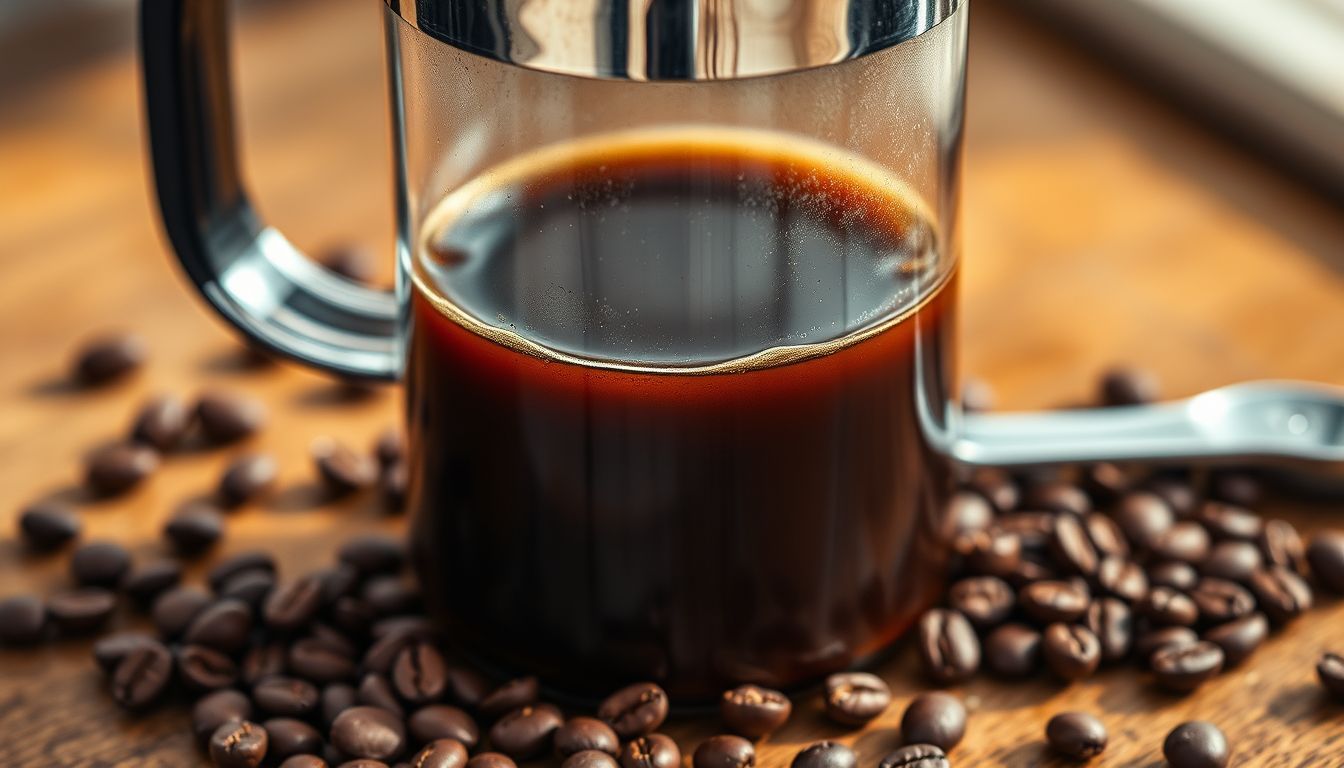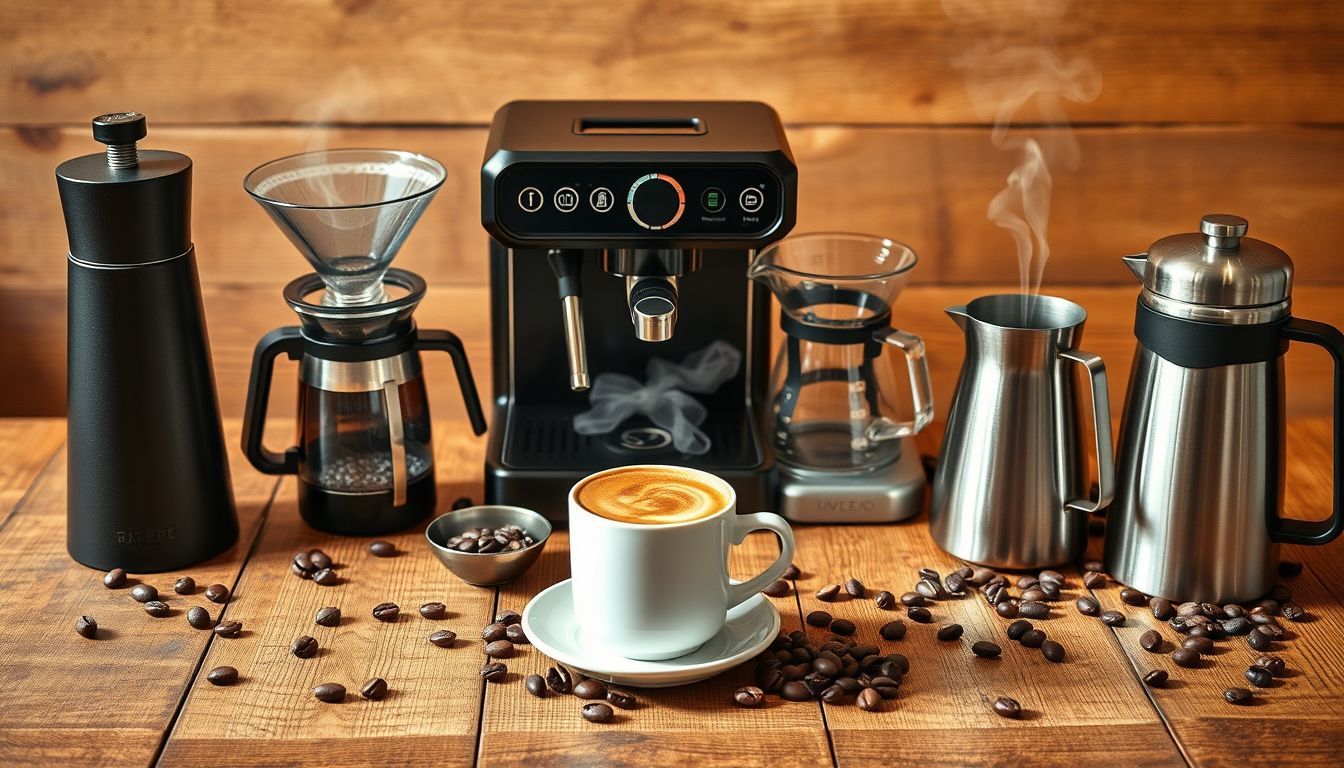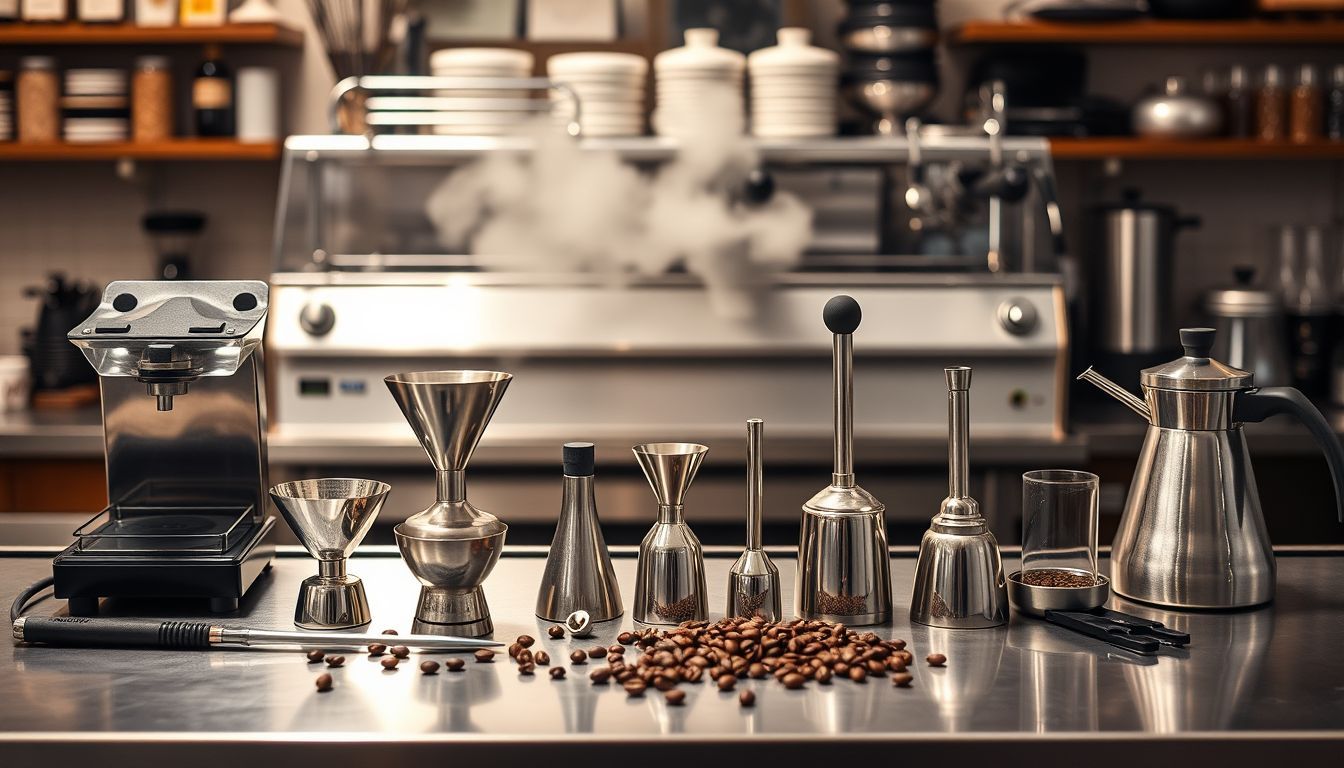The Hidden Science of Coffee Oil Extraction: Enhancing Flavor Depth and Body in Your Brew
Explore how coffee oils influence flavor and body, and learn brewing techniques to optimize their extraction for a richer, more satisfying cup.

Amazon Affiliate Disclosure
This post contains affiliate links. If you purchase through these links, we may earn a small commission at no additional cost to you.
Introduction
Coffee is more than just a morning ritual; it's a complex beverage with a depth of flavors and textures that can be fine-tuned through understanding its chemistry. One of the key components contributing to coffee's richness and mouthfeel is its oils. These oils, extracted during brewing, play a pivotal role in defining the flavor profile and body of your cup. In this exploration, we'll delve into the science behind coffee oil extraction and how you can harness it to enhance your brewing experience.
The Role of Coffee Oils in Flavor and Body
What Are Coffee Oils?
Coffee oils are lipid compounds present within the coffee bean. During roasting, these oils develop and migrate towards the bean's surface. They are responsible for carrying many of the aromatic compounds that define coffee's flavor and contribute to the beverage's body, providing a fuller mouthfeel.
Impact on Flavor
The extraction of coffee oils during brewing influences the intensity and complexity of flavors. These oils encapsulate volatile compounds that, when released, enhance the aromatic profile of the coffee. A higher oil content can lead to a richer, more robust flavor, while a lower oil content may result in a cleaner, more delicate cup.
Contribution to Body
The body of coffee refers to the tactile sensation or weight of the beverage on the palate. Coffee oils contribute significantly to this aspect. A brew with more oils will feel heavier and more viscous, offering a creamy texture, whereas a brew with fewer oils will feel lighter and more aqueous.
Brewing Methods and Oil Extraction
Different brewing methods extract coffee oils to varying degrees, affecting the final cup's flavor and body.
French Press
The French Press is renowned for producing a full-bodied cup. This immersion method allows coffee grounds to steep directly in hot water, and the metal mesh filter permits oils and fine particles to pass through into the final brew. The result is a rich, robust coffee with pronounced flavors and a heavier mouthfeel.
Espresso
Espresso brewing involves forcing hot water under high pressure through finely ground coffee. This process emulsifies the oils, creating a thick, creamy layer known as crema on top of the shot. The high pressure and short extraction time result in a concentrated beverage with a full body and intense flavor profile.
Pour-Over
Pour-over methods, such as the V60 or Chemex, use paper filters that trap most of the coffee oils, leading to a cleaner cup with a lighter body. The absence of oils results in a brew that highlights the coffee's acidity and nuanced flavors, offering clarity and brightness.
Cold Brew
Cold brew involves steeping coarse coffee grounds in cold water for an extended period, typically 12 to 24 hours. This method extracts fewer oils and acids, resulting in a smooth, mellow beverage with low acidity and a lighter body.
Factors Influencing Oil Extraction
Several variables affect the extraction of coffee oils during brewing:
Grind Size
The size of the coffee grind impacts the surface area exposed to water. Finer grinds increase surface area, potentially leading to higher oil extraction, especially in methods like espresso. Coarser grinds, used in French press or cold brew, may result in less oil extraction but can still produce a full-bodied cup due to longer contact times.
Water Temperature
Water temperature influences the solubility of coffee oils. Higher temperatures (195°F to 205°F or 90°C to 96°C) are more effective at extracting oils, contributing to a richer body. However, excessively high temperatures can lead to over-extraction and bitterness.
Brew Time
The duration of brewing affects oil extraction. Longer brew times, as seen in French press or cold brew, allow more oils to be extracted, enhancing body. Shorter brew times, like in espresso, rely on pressure to extract oils quickly.
Health Considerations
While coffee oils contribute to flavor and body, they also contain compounds like cafestol and kahweol, which can influence cholesterol levels. Methods that allow more oils into the cup, such as French press and espresso, may lead to higher intake of these compounds. Using paper filters, as in pour-over methods, can reduce their presence, potentially mitigating health risks.
Practical Tips for Enhancing Oil Extraction
To optimize coffee oil extraction and enhance flavor depth and body:
- Choose the Right Brewing Method: Select a method that aligns with your flavor and body preferences. For a richer cup, consider French press or espresso.
- Adjust Grind Size: Match the grind size to your brewing method to control extraction rates effectively.
- Control Water Temperature: Use water within the optimal temperature range to maximize oil extraction without over-extracting.
- Mind Brew Time: Adhere to recommended brew times for your chosen method to balance oil extraction and flavor development.
Conclusion
Understanding the science of coffee oil extraction empowers you to tailor your brewing process, enhancing the depth and body of your coffee. By considering factors like brewing method, grind size, water temperature, and brew time, you can craft a cup that aligns with your taste preferences, offering a more satisfying and flavorful experience.

Marcus Thorne
As a journalist, I learned that the truth is often buried under layers of misinformation and time. As a novelist, I get to do the digging. Whether it's a forgotten event from the Cold War or a present-day conspiracy, I build my stories on a foundation of fact, inviting you to question what you think you know.


